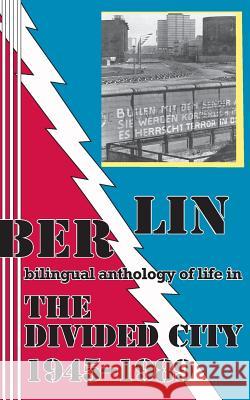Berlin: bilingual anthology of life in The Divided City 1945-1989 » książka
Berlin: bilingual anthology of life in The Divided City 1945-1989
ISBN-13: 9780930012649 / Angielski / Miękka / 2013 / 390 str.
You can read this book as intimate history, or as poetry, or simply as a tool for learning another language. Many of these writers have had long and successful careers as writers, editors, film producers. It will broaden and deepen your understanding of the world. Although Berlin is no longer a divided city, the unique situation of two centers of creative activity side by side stitched life and art together intensely. Everyday activities became political; ideology clashed with economics-and love. The stories and poems in this book-poems are bilingual German and English-give glimpses of this frontier of two progressive visions of the future, as both sides start afresh, to build a new Germany. The divided city of Berlin offered a rare opportunity for two strong ideologies to exist side by side without being at war or simply opposing the "other." Mitch Cohen, the enterprising editor, as an American, discovered that he was able to pass unrestricted through the Brandenburg Gate, both ways, a privilege not accorded to Germans on either side. This allowed him to personally meet and talk with the contributors to this unique anthology. He noted that both East Berlin and West Berlin continued to draw the talented, the ambitious-and to be the cultural centers for both Germanies, in a creative ferment heightened by real world situations confronting Berliners in their daily lives. Over half the writers in this book were born after the end of World War II, which had wrought utter devastation throughout Germany. The recovery, even with the Marshall Plan, required a new outlook on what it meant to be German. And in the middle of that national psychic shock, they were thrust into the global ideological struggle between the Western powers and the Soviet Union, dubbed "The Cold War." These circumstances made a divided Berlin a very interesting time and place in which to live. Fiction may be a very useful tool for us to learn better how to live our human lives, by presenting situations that we can visit in our minds. An anthology like Berlin, however, adds an ingredient of immediacy, because these poems, these stories, have a sharper edge, the edge of reality. You don't have to live there to feel the heightened emotion; these writers create a portrait of a city that was like no other. What a treasure that is For a glimpse at American writers of the same period, take a look at First Person Intense, with writers such as Charles Bukowski, Richard Peabody, Fielding Dawson, and 20 others exploring first-person writing."











